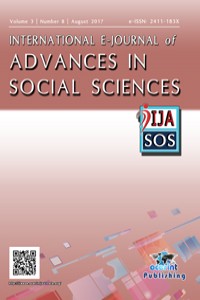Abstract
References
- Aichinger, Ilse. 1996. Verschenkter Rat. Fischer Taschenbuch Verlag GmbH:Frankfurt am Main. Bachmann, Ingeborg. 2010. Sämtliche Gedichte. Piper Verlag: München Zürich Orjonikidze, Iza. 2009. 100 poems. Editor: Tea Tvalavadze, Intelekti-Tbilisi Sturua, Iza. 2008. 100 poems. Editor: Nino Quloshvili, Intelekti-Tbilisi Albrecht, Monika& Göttsche, Dirk (Hrsg). 2002. Bachmann-Handbuch, Leben-Werk-Wirkung. Stuttgart, Weimar. Verlag Metzler. Bartsch, Kurt. 1997. Ingeborg Bachmann 2.Aufl.Stuttgart, Weimar. Verlag Metzler. Budorf, Dieter. 1997. Einführung in die Gedichtanalyse 2. überab. U.akt.Aufl. Stuttgart, Weimar. Verlag Metzler. Barner, Wilfried (Hrsg), Alexander von Bormann, Manfred Durzak und andere. 1994. Geschichte der deutschen Litertut von 1945 bis zur Gegenwart. Verlag C.H. Beck: München. Macking, Marina .ed. The literature of World War II. 2009. Cambridge University Press. Schnell, Ralf. 1993. Geschichte der deutschsprachigen Litertur seit 1945. Verlag J.B. Metzler: Stutgart-Weimar Khomeriki, Lela and Javakhishvili, Manana. Public Activities of Women in Georgia
Abstract
As literary texts are considered as a free area
of imagination, which often reflect women's reactionary or progressive
perceptions, their analysis is one of the best opportunities for the
construction of cultural, social, psychological, historical images. Until the
1930-ies the traditional role of women was determined by the male construction:
the woman is a mother and wife and is associated to domestic work and taking
care of household. The main success of the woman was considered to get marriage
and have children. However, the economic crisis caused by the Second World War
and the need for women's resources changed the discourse and made the identity
of the women of the time of war more complex: the woman undertook multiple
role: feminine, working like man, spouse, ideal housewife. Poetic texts by two
German female authors – Ingeborg Bachmann, Ilse Aichinge and by two Georgian
female authors –Lia Sturua and Iza Orjonikidze were chosen as the objects of
this study. As the historical contexts of Georgian and Austrian literature of
the twentieth century reveal some similarities, such as the annexation, the
Anschluss, a small country with a glorious past, a small county with a large
neighbour etc., these similarities outlined the object of this study. The
analysis of poetic texts by Georgian and Austrian female authors revealing on
the one hand, contemporary and historical peculiarities of feminine narrative,
and on the other hand, contrasts in cultural contexts, allow us to demonstrate
and establish their national, individual and historical characteristics. The
comparative analysis of the feminine narrative of the twentieth-century may
also reveal sub-alternate status and marginalized role of women in the
totalitarian regime.
References
- Aichinger, Ilse. 1996. Verschenkter Rat. Fischer Taschenbuch Verlag GmbH:Frankfurt am Main. Bachmann, Ingeborg. 2010. Sämtliche Gedichte. Piper Verlag: München Zürich Orjonikidze, Iza. 2009. 100 poems. Editor: Tea Tvalavadze, Intelekti-Tbilisi Sturua, Iza. 2008. 100 poems. Editor: Nino Quloshvili, Intelekti-Tbilisi Albrecht, Monika& Göttsche, Dirk (Hrsg). 2002. Bachmann-Handbuch, Leben-Werk-Wirkung. Stuttgart, Weimar. Verlag Metzler. Bartsch, Kurt. 1997. Ingeborg Bachmann 2.Aufl.Stuttgart, Weimar. Verlag Metzler. Budorf, Dieter. 1997. Einführung in die Gedichtanalyse 2. überab. U.akt.Aufl. Stuttgart, Weimar. Verlag Metzler. Barner, Wilfried (Hrsg), Alexander von Bormann, Manfred Durzak und andere. 1994. Geschichte der deutschen Litertut von 1945 bis zur Gegenwart. Verlag C.H. Beck: München. Macking, Marina .ed. The literature of World War II. 2009. Cambridge University Press. Schnell, Ralf. 1993. Geschichte der deutschsprachigen Litertur seit 1945. Verlag J.B. Metzler: Stutgart-Weimar Khomeriki, Lela and Javakhishvili, Manana. Public Activities of Women in Georgia
Details
| Journal Section | Research Article |
|---|---|
| Authors | |
| Publication Date | August 31, 2017 |
| Submission Date | September 8, 2017 |
| Published in Issue | Year 2017 Volume: 3 Issue: 8 |
Contact: ijasosjournal@hotmail.com
The IJASOS Journal's site and its metadata are licensed under CC BY
Published and Sponsored by OCERINT International © 2015- 2025

